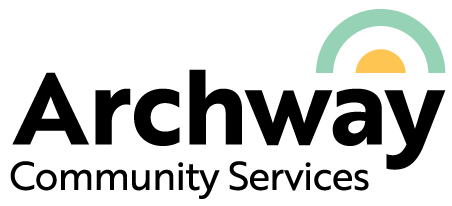
Display outside of a church on the Stoney Indian Reserve in Alberta that mourns the loss of children in residential schools
I believe the most important part of learning about residential schools is that the we must all educate themselves. Placing the words ‘residential schools’ into a search bar, attending workshops, reading books about the subject matter will help people to learn more. I’ve also recommended some resources below.
I read that if a child was young enough to go residential school, today, children of the same age can learn about it. I believe this to be true, for where there is no education; assumptions fill in the gaps. Children may only see the distressing outcomes of intergeneration impacts and not fully understand why some of our people engage in self-destructive behaviours in response to emotional pain.
These resources were compiled by Archway board member Kihci Têpakohp Iskotêw Iskwêw (Emily Henry).

Residential Schools in Canada: A Timeline
Learn about the significant dates in history — from the landing of Jesuits in what is now known as Quebec, to the release of the Truth and Reconciliation Commission of Canada’s final report in 2015.
Teaching about Residential Schools to Young Children
This one minute video introduces the topic of residential schools for elementary children. Something not covered fully by this video is that residential schools were developed by the Federal Government and run by the Catholic church, Anglican church and other churches.
This two minute video covers residentials schools and the resulting intergenerational trauma.
Set to the music of “The Stranger”, this video shows the story of Charlie (Chanie) Wenjack, a 12 year old who died after he ran away from residential school. I would preface by stating that it is important to discuss that ‘run aways’ were not as the only cause of deaths in residential schools, as we now see with the discovery of bodies.
Learn how a classroom of children in Toronto responded to learning about residential school and Charlie’s story. It is especially important for those parents/caregivers who might wonder how their children may react to the discussion of residential school.
This video speaks to the Australian people’s experience, which is similar to ours. However, we do not have a time frame for the beginning of our peoples journey prior to European contact (i.e., Australia: 60 thousand years versus North America: since time immemorial). We also do not describe the removal of our children as the ‘stolen generations.’
However, I love the simplistic way that intergenerational impacts (or trauma) are explored in the video. It will help parents or caregivers discuss the intergenerational impacts resulting from residential school.
Young Person’s Learning and Activity Guide
This Government of Canada guide from 2018 does not cover residential schools but provides a space to explore a little bit of Indigenous history and is a great way to start a conversation with young people about National Indigenous Day on June 21st.
Support Services Available
If learning about residential schools causes a person distress, they can reach out the following numbers to speak about their feelings:
- Support is available for anyone affected by the lingering effects of residential schools, and those who are triggered by the latest reports. The Indian Residential School Survivors Society can be contacted toll-free at 1-800-721-0066.
- A national Indian Residential School Crisis Line has been set up to provide support for former students and those affected. Access emotional and crisis referral services by calling the 24-hour national crisis line: 1-866-925-4419.
- Within B.C., the KUU-US Crisis Line Society provides a First Nations and Indigenous-specific crisis line available 24 hours a day, seven days a week. It’s toll free and can be reached at 1-800-588-8717 or online at kuu-uscrisisline.com.
